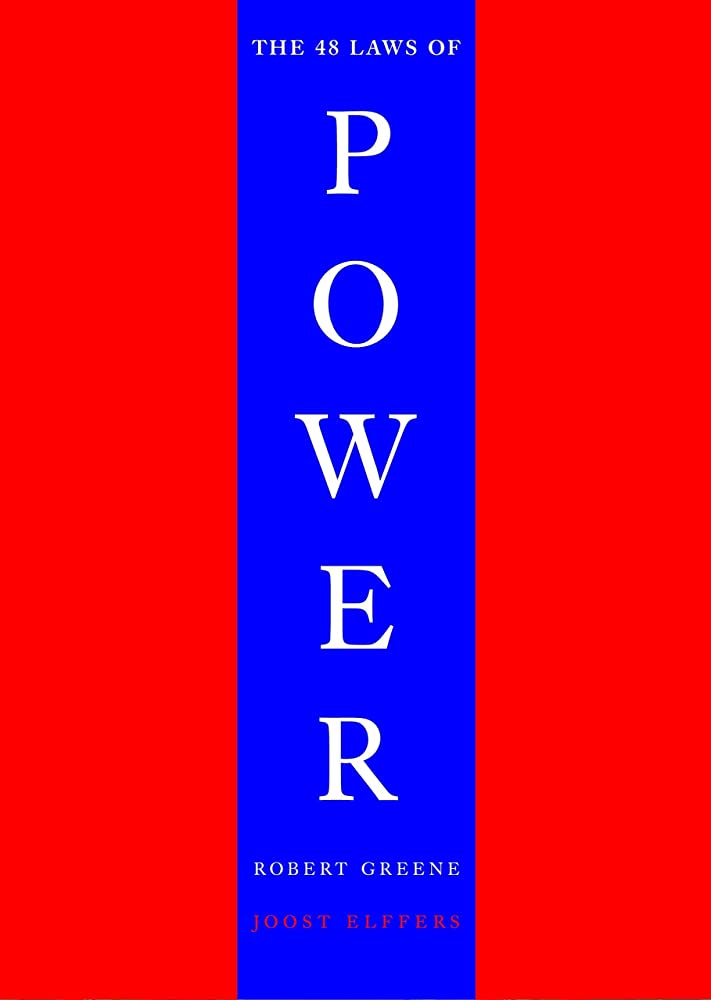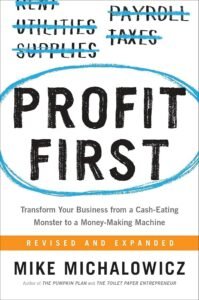📖 Overview – Why The 48 Laws of Power Matters
Few books in history have sparked as much debate as The 48 Laws of Power by Robert Greene. Called “the modern Machiavelli,” Greene dives into the raw truth about human nature, strategy, and influence.
This book isn’t just for CEOs or politicians—it’s for anyone who wants to understand the hidden dynamics of power in:
-
Business: Navigating office politics, climbing the corporate ladder
-
Relationships: Managing influence, trust, and negotiation
-
Personal Growth: Building resilience, confidence, and reputation
Think of it as a manual for survival and success. Whether you want to live long and thrive in business or protect yourself from manipulation, these 48 laws are essential.
🏛 Key Concepts: The 48 Laws of Power (Explained with Examples)
Below, we’ll go through each law, with practical explanations and real-world stories.
Law 1: Never Outshine the Master
📌 Always let your superiors feel more important.
-
Example: Nicolas Fouquet, French finance minister, hosted a party so dazzling that King Louis XIV felt overshadowed and imprisoned him for life.
-
Modern Tip: At work, make your boss look good. Instead of stealing the spotlight, help them shine—your loyalty will be rewarded.
Law 2: Never Put Too Much Trust in Friends, Learn How to Use Enemies
📌 Friends can betray out of envy. Enemies, once won over, can be more loyal.
-
Example: Abraham Lincoln built a “Team of Rivals,” appointing political enemies to his cabinet. They became his strongest allies.
-
Modern Tip: Don’t blindly trust friends in business partnerships. Sometimes competitors turned collaborators are more reliable.
Law 3: Conceal Your Intentions
📌 Keep people guessing—don’t reveal your full plans.
-
Example: Otto von Bismarck, the Iron Chancellor, never revealed his strategy for unifying Germany until it was too late for rivals to stop him.
-
Modern Tip: In negotiations, reveal less. Let curiosity and uncertainty work in your favor.
Law 4: Always Say Less Than Necessary
📌 Power comes from silence and restraint.
-
Example: Steve Jobs used pauses and few words in presentations, making his message more powerful.
-
Modern Tip: In meetings, speak with purpose. Silence creates authority.
Law 5: So Much Depends on Reputation — Guard It with Your Life
📌 Reputation is the foundation of influence.
-
Example: Julius Caesar’s reputation for generosity secured him loyalty from soldiers.
-
Modern Tip: Protect your online presence. One careless post can ruin years of credibility.
Law 6: Court Attention at All Costs
📌 Visibility equals power.
-
Example: P.T. Barnum mastered the art of spectacle, becoming one of history’s greatest showmen.
-
Modern Tip: In business, being known is better than being the best-kept secret. Build your personal brand.
Law 7: Get Others to Do the Work, but Take the Credit
📌 Leverage others’ efforts strategically.
-
Example: Thomas Edison often took credit for his team’s inventions, cementing his legacy as a genius.
-
Modern Tip: Delegate effectively, but position yourself as the leader behind results.
Law 8: Make Other People Come to You — Use Bait if Necessary
📌 Control comes when others chase you.
-
Example: During negotiations, Sun Tzu advised luring the enemy into your territory instead of attacking theirs.
-
Modern Tip: In business deals, create irresistible offers that pull clients toward you.
Law 9: Win Through Your Actions, Never Through Argument
📌 Demonstration beats debate.
-
Example: Galileo proved heliocentrism by showing models rather than arguing endlessly with scholars.
-
Modern Tip: Instead of arguing at work, show data or results that settle the debate.
Law 10: Infection — Avoid the Unhappy and Unlucky
📌 Energy is contagious. Stay away from toxic people.
-
Example: Many leaders fell from grace by associating with disgraced allies. Napoleon avoided this mistake by discarding toxic generals.
-
Modern Tip: Surround yourself with ambitious, positive people who lift you up.
Law 11: Learn to Keep People Dependent on You
-
Definition: The more others rely on you for their success, decisions, or security, the more control you have. Independence of others means loss of your influence.
-
Example: Steve Jobs’ visionary leadership made Apple employees and even investors deeply reliant on his direction. His absence often led to uncertainty.
-
Modern Tip: Build skills or networks that others cannot easily replace. If your value is unique, you’ll always have leverage.
Law 12: Use Selective Honesty and Generosity to Disarm
-
Definition: A single act of honesty or generosity can overshadow years of manipulation, making people trust you.
-
Example: Warren Buffett, despite being one of the wealthiest, lives modestly and speaks plainly, which earns trust even when he makes complex financial moves.
-
Modern Tip: Be transparent strategically. Share truth when others least expect it—it builds credibility.
Law 13: When Asking for Help, Appeal to Self-Interest
-
Definition: People rarely help out of kindness; they help if it benefits them.
-
Example: Benjamin Franklin won over opponents by asking them to lend him a book. By making them feel useful, he turned enemies into allies.
-
Modern Tip: Frame requests in terms of how the other person gains—status, recognition, profit, or influence.
Law 14: Pose as a Friend, Work as a Spy
-
Definition: Information is power. Befriend others not just for warmth but to learn their motives and weaknesses.
-
Example: During the Cold War, many nations planted “diplomats” who were in reality spies gathering intelligence under the guise of friendship.
-
Modern Tip: In business, ask questions and listen more than you speak. Data and insights about competitors or partners are priceless.
Law 15: Crush Your Enemy Totally
-
Definition: Leaving even a small spark of an enemy alive allows them to recover and strike back.
-
Example: Julius Caesar crushed Pompey and his supporters completely, ensuring they could not regroup.
-
Modern Tip: In negotiations, if you must compete, eliminate rival threats fully (legally and ethically). Don’t leave lingering conflicts.
Law 16: Use Absence to Increase Respect and Honor
-
Definition: Too much presence lowers your value; absence creates intrigue and respect.
-
Example: Elon Musk sometimes disappears from the media for months. When he returns with announcements, the world pays attention.
-
Modern Tip: In work or personal branding, don’t always be “available.” Create scarcity around your time.
Law 17: Keep Others in Suspended Terror—Cultivate an Air of Unpredictability
-
Definition: Predictability makes you weak. Uncertainty makes people cautious around you.
-
Example: North Korea’s leadership often uses unpredictability in diplomacy, making larger nations treat them carefully despite limited power.
-
Modern Tip: Occasionally surprise people—change patterns, introduce unexpected moves. It keeps you interesting and hard to counter.
Law 18: Do Not Build Fortresses to Protect Yourself
-
Definition: Isolation makes you weak. Power comes from staying connected and informed.
-
Example: Louis XVI isolated himself in Versailles, cut off from the people’s suffering—leading to the French Revolution.
-
Modern Tip: Stay active in your network. Don’t hide behind emails or titles—engage with people.
Law 19: Know Who You’re Dealing With—Do Not Offend the Wrong Person
-
Definition: Some people are vengeful, others powerful. Misjudging someone can destroy you.
-
Example: John Lennon offended Mark David Chapman unknowingly, who later assassinated him. Wrong person, wrong time.
-
Modern Tip: Research personalities before challenging them. Avoid unnecessary conflicts—choose battles wisely.
Law 20: Do Not Commit to Anyone
-
Definition: By refusing permanent alliances, you stay free and unpredictable.
-
Example: Queen Elizabeth I never married, keeping suitors and nations guessing—maintaining power.
-
Modern Tip: In business, don’t tie yourself to only one client, vendor, or employer. Options = freedom.
Law 21: Play a Sucker to Catch a Sucker
-
Definition: Appear less intelligent than you are to disarm rivals.
-
Example: Albert Einstein often acted absent-minded, making people underestimate his sharpness.
-
Modern Tip: Let others think they’re smarter—it makes them drop their guard.
Law 22: Use the Surrender Tactic
-
Definition: When weaker, surrender gracefully—it buys time and avoids destruction.
-
Example: Mahatma Gandhi “surrendered” with non-violence, but ultimately broke British control.
-
Modern Tip: Sometimes losing a small battle now helps win the bigger war later.
Law 23: Concentrate Your Forces
-
Definition: Focus resources on one powerful goal instead of scattering them.
-
Example: Bill Gates concentrated Microsoft on software (Windows, Office), instead of hardware, dominating the market.
-
Modern Tip: Focus beats multitasking. Channel time and energy into one key strength.
Law 24: Play the Perfect Courtier
-
Definition: Success comes from pleasing, flattering, and adapting to those in power.
-
Example: Nicolas Fouquet tried to outshine King Louis XIV and was jailed. His rival Colbert, however, thrived by serving humbly.
-
Modern Tip: In offices, show respect and loyalty upward without appearing manipulative. Subtle flattery works.
Law 25: Re-Create Yourself
-
Definition: Don’t accept the roles society assigns—shape your own identity.
-
Example: Madonna reinvented her image repeatedly, staying relevant for decades.
-
Modern Tip: Rebrand yourself as industries evolve—skills and identities must be updated.
Law 26: Keep Your Hands Clean
-
Definition: Let others do the dirty work, while you appear spotless.
-
Example: Mafia bosses rarely did crimes directly; they used others, maintaining a clean front.
-
Modern Tip: Delegate sensitive or risky work, but take credit for successes.
Law 27: Play on People’s Need to Believe
-
Definition: People crave belief systems—offer them a cause and they’ll follow.
-
Example: Steve Jobs created almost a cult-like following for Apple, presenting products as revolutions, not just gadgets.
-
Modern Tip: Frame your product, service, or idea as part of a bigger mission. People follow passion, not logic alone.
Law 28: Enter Action with Boldness
-
Definition: Hesitation kills momentum. Bold moves inspire confidence.
-
Example: Alexander the Great led from the front in battles, earning loyalty.
-
Modern Tip: When presenting ideas, pitch boldly. Half-hearted attempts don’t persuade.
Law 29: Plan All the Way to the End
-
Definition: Think beyond the immediate—anticipate consequences.
-
Example: Amazon under Jeff Bezos planned for decades, reinvesting profits instead of chasing short-term wins.
-
Modern Tip: Play long-term games. Think in decades, not days.
Law 30: Make Your Accomplishments Seem Effortless
-
Definition: Hard work should appear natural and easy.
-
Example: Michael Jordan’s game looked effortless, but behind it was relentless training.
-
Modern Tip: Work hard privately, but present results as smooth and natural.
Law 31: Control the Options
-
Definition: Give others choices that all benefit you.
-
Example: Henry Ford offered cars in “any color—so long as it’s black.”
-
Modern Tip: Structure deals so any choice made still favors you.
Law 32: Play to People’s Fantasies
-
Definition: Truth is harsh; fantasies sell.
-
Example: Walt Disney built Disneyland as “the happiest place on earth,” selling a dream.
-
Modern Tip: Sell visions, not just products. Tap into emotions, not logic.
Law 33: Discover Each Man’s Weak Spot
-
Definition: Everyone has a hidden need or insecurity. Find it, and you hold the key.
-
Example: J.P. Morgan used rivals’ debts and secrets to control them.
-
Modern Tip: Observe carefully. People’s weaknesses reveal themselves in casual conversation.
Law 34: Be Royal in Your Own Fashion
-
Definition: Act like royalty, and people will treat you like one.
-
Example: Coco Chanel carried herself with grace and exclusivity, turning her brand into luxury.
-
Modern Tip: Don’t beg for respect—project confidence and people will follow.
Law 35: Master the Art of Timing
-
Definition: Rushing or delaying wrongly can kill success.
-
Example: Google bought YouTube early before it exploded, mastering timing.
-
Modern Tip: Sense trends. Enter when the wave is rising, not falling.
Law 36: Disdain Things You Cannot Have
-
Definition: The less you desire something, the more powerful you appear.
-
Example: Diogenes mocked Alexander the Great’s offer of riches, earning respect for his indifference.
-
Modern Tip: If you can’t win something, ignore it. It reduces its power over you.
Law 37: Create Compelling Spectacles
-
Definition: Dramatic visuals captivate more than words.
-
Example: Hitler used grand rallies and symbols to stir mass emotions.
-
Modern Tip: Use visuals in business—presentations, videos, events—people remember spectacle over detail.
Law 38: Think as You Like but Behave Like Others
-
Definition: Blend in outwardly, while holding your own beliefs privately.
-
Example: Galileo avoided punishment by publicly denying his findings, but quietly kept them alive.
-
Modern Tip: Fit into social norms, but keep independent thought.
Law 39: Stir Up Waters to Catch Fish
-
Definition: Anger or chaos makes others act foolishly.
-
Example: Muhammad Ali would anger rivals with words, making them reckless in the ring.
-
Modern Tip: When negotiating, trigger emotions carefully—people reveal truths under stress.
Law 40: Despise the Free Lunch
-
Definition: What is free often has hidden costs.
-
Example: Many “free” apps mine user data for profit.
-
Modern Tip: Pay your way when possible—it keeps you independent.
Law 41: Avoid Stepping into a Great Man’s Shoes
-
Definition: Following legends invites comparison. Blaze your own path.
-
Example: Steve Ballmer struggled after Bill Gates because he was always compared. Satya Nadella succeeded by creating his own vision.
-
Modern Tip: Don’t mimic predecessors—create your own identity.
Law 42: Strike the Shepherd, and the Sheep Will Scatter
-
Definition: Remove the leader, and the followers lose direction.
-
Example: The U.S. captured Saddam Hussein, leading to Iraq’s regime collapse.
-
Modern Tip: In conflicts, target the influencer, not the crowd.
Law 43: Work on the Hearts and Minds of Others
-
Definition: Force creates resistance; persuasion creates loyalty.
-
Example: Martin Luther King Jr. inspired millions through words, not force.
-
Modern Tip: Win people emotionally, not just logically.
Law 44: Disarm and Infuriate with the Mirror Effect
-
Definition: Reflect people’s actions to confuse or expose them.
-
Example: Gandhi mirrored British laws against Indians, highlighting their hypocrisy.
-
Modern Tip: Use mirroring in negotiations—it unsettles opponents.
Law 45: Preach the Need for Change, but Never Too Much
-
Definition: People resist drastic change—introduce it slowly.
-
Example: Japan modernized gradually during the Meiji era, avoiding chaos.
-
Modern Tip: In teams, push small upgrades over time—too much change creates fear.
Law 46: Never Appear Too Perfect
-
Definition: Showing flaws makes you relatable. Perfection creates envy.
-
Example: Princess Diana’s openness about struggles made her beloved.
-
Modern Tip: Share small vulnerabilities—they build trust.
Law 47: Do Not Go Past the Mark You Aimed For
-
Definition: Stop once you’ve achieved victory. Overreaching leads to disaster.
-
Example: Napoleon overextended by invading Russia—destroying his empire.
-
Modern Tip: Know when to stop negotiating, expanding, or pushing.
Law 48: Assume Formlessness
-
Definition: Be adaptable, never rigid. Fixed structures break under pressure.
-
Example: Bruce Lee’s philosophy: “Be water, my friend”—adapt to any container.
-
Modern Tip: Stay flexible. Industries, jobs, and power shift—those who adapt survive.
10 powerful takeaways from The 48 Laws of Power that you can apply in business, career, and personal growth:
1. Power is Neutral — Use it Wisely
Power itself is not good or bad; it’s how you use it. Understanding power dynamics helps you protect yourself and make better strategic decisions.
2. Appearances Often Matter More Than Reality
People judge based on what they see, not always on truth. Managing perception is a key part of influence.
3. Control Emotions, Don’t React
Never let anger, envy, or insecurity guide decisions. The calmer person usually holds more power.
4. Knowledge is Power — But Secrecy Protects It
The less others know about your plans, weaknesses, or next steps, the harder it is for them to undermine you.
5. Depend on Strategy, Not Force
Raw aggression rarely lasts; smart positioning and long-term moves win. Strategy beats strength.
6. Choose Allies Carefully
Friends may betray, enemies can sometimes serve you better. Base partnerships on mutual interests, not emotions.
7. Timing is Everything
A good idea at the wrong time fails. Patience and striking at the right moment separate winners from losers.
8. Learn from History, Apply in Present
These laws repeat across centuries. Observing leaders, politics, and business today shows the same principles in play.
9. Adaptability Ensures Survival
Rigidity makes you predictable. The more flexible you are in your tactics, the more control you maintain.
10. Never Stop Learning Power Games
Even if you dislike “politics,” others will play them. By understanding the rules, you can protect yourself and advance your goals.




